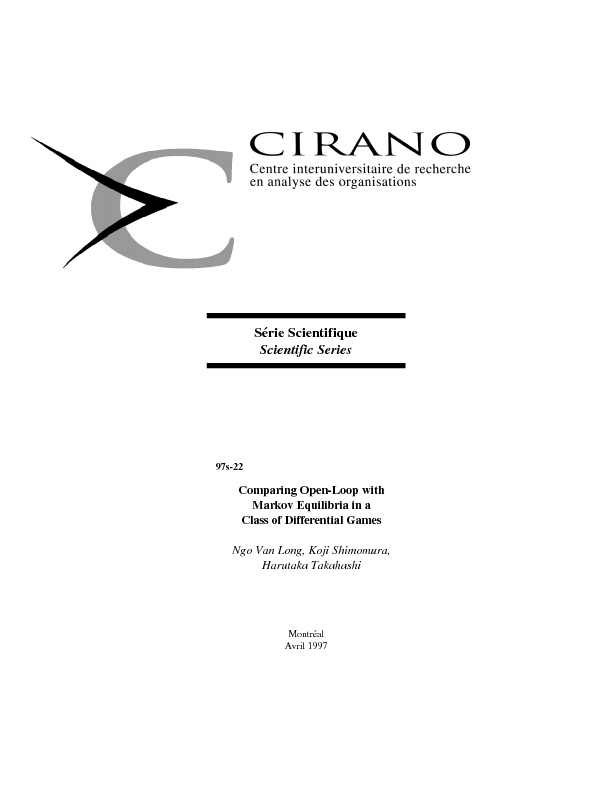Comparing Open-Loop with Markov Equilibria in a Class of Differential Games
We consider a class of differential games with transition equations that are homogeneous of degree one. For any game G with a discount rate r, consider a Markov perfect equilibrium (MPE) with strategies that are linear in the state variables. We show that the time paths of the control variables of this equilibrium constitute an open-loop equilibrium of a corresponding game ![]() that differs from G only in that its rate of discount
that differs from G only in that its rate of discount ![]() is equal to r plus a suitably chosen constant. In the context of a resource depletion game, this implies that the open-loop solution is more conservationist. In an alternative formulation, we consider a game G with a rate of stock depreciation
is equal to r plus a suitably chosen constant. In the context of a resource depletion game, this implies that the open-loop solution is more conservationist. In an alternative formulation, we consider a game G with a rate of stock depreciation ![]() and a Markov perfect equilibrium with strategies that are linear in the state variable. Then the resulting equilibrium time paths of the control variables can be used to form an open-loop equilibrium of a corresponding game
and a Markov perfect equilibrium with strategies that are linear in the state variable. Then the resulting equilibrium time paths of the control variables can be used to form an open-loop equilibrium of a corresponding game ![]() with a rate of depreciation
with a rate of depreciation ![]() that is equal to
that is equal to ![]() plus a suitably chosen constant. The interpretation for the case of a resource game is similar. We also prove a converse result: under certain assumptions, an open loop equilibrium of a differential game G can be used to construct a MPE of a modified game
plus a suitably chosen constant. The interpretation for the case of a resource game is similar. We also prove a converse result: under certain assumptions, an open loop equilibrium of a differential game G can be used to construct a MPE of a modified game ![]() . This result is useful because it means a MPE can be found by first solving for an open loop equilibrium."
. This result is useful because it means a MPE can be found by first solving for an open loop equilibrium."
[ - ]




